|
Support independent journalism
|
|
|
|
|
|

|
 |
|
|
First Thing: Israeli military database indicates only a quarter of Gaza detainees are fighters
|
|
|
Children, sick and disabled people among 6,000 imprisoned without charge or trial. Plus, Portugal mourns after deadly funicular crash in Lisbon
|
|
 |
 Israeli forces personnel outside Ofer military prison. Photograph: Ammar Awad/Reuters
|
|
Clea Skopeliti
|
|
|
Good morning.
Only a quarter of detainees from Gaza held in Israeli jails are identified as fighters by Israel’s military intelligence, according to classified data.
A joint investigation by the Guardian, the Israeli-Palestinian publication +972 magazine and the Hebrew-language outlet Local Call reveals that Israel’s data indicates that civilians make up the overwhelming majority of Palestinians held without charge or trial.
Those jailed include children and elderly people, sick, and disabled people, as well as medical workers, teachers, civil servants, media workers and writers.
In May, Israel had detained 6,000 people under its “unlawful combatants” legislation, which allows indefinite imprisonment without charge or trial, official data released after legal appeals showed. Of this number, 1,450 individuals were on Israel’s database that classifies individuals as Hamas and Palestinian Islamic Jihad fighters.
Trump asks US supreme court to overturn trade tariffs ruling
|
|
|
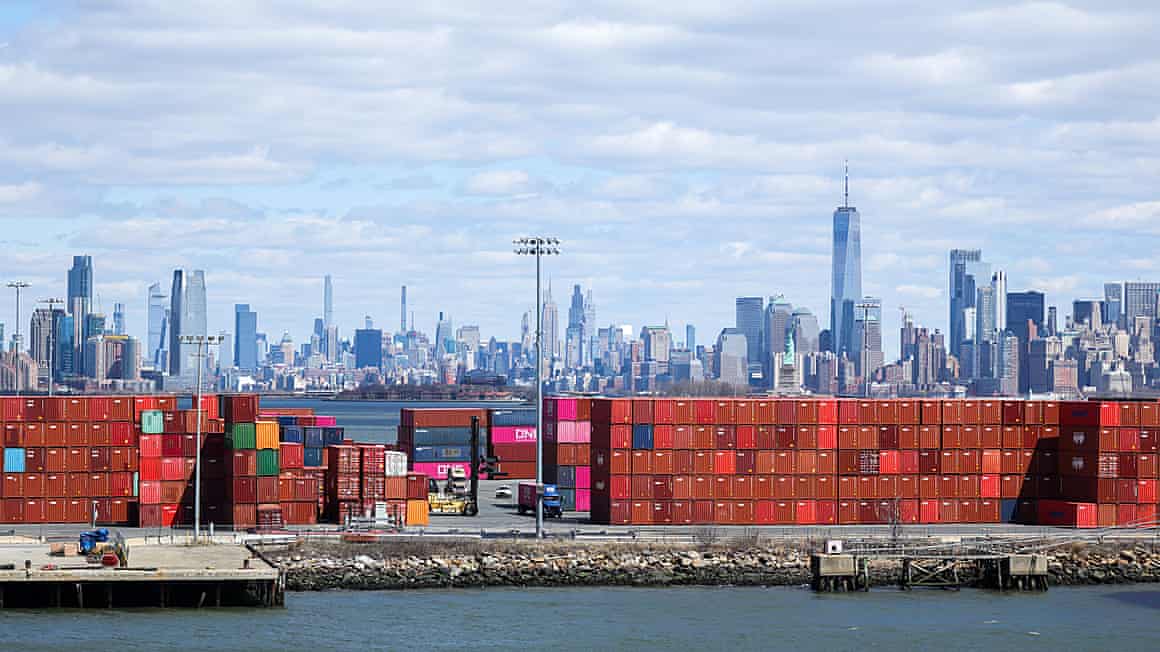 |
 Shipping containers at the Port Jersey container terminal. Photograph: Charly Triballeau/AFP/Getty Images
|
|
|
|
Donald Trump has asked the US supreme court to review a lower-court decision that found the majority of his trade tariffs were illegal.
In a decisive blow to his trade policy, on Friday the federal appeals court found in a 7-4 ruling that Trump had exceeded his presidential powers by using a 1977 law designed to address national emergencies to introduce his 2 April “liberation day” border taxes. The ruling upheld a previous decision by the US court of international trade.
Democrats foil justice department lawsuit by negotiating to keep 98,000 North Carolina voters
|
|
|
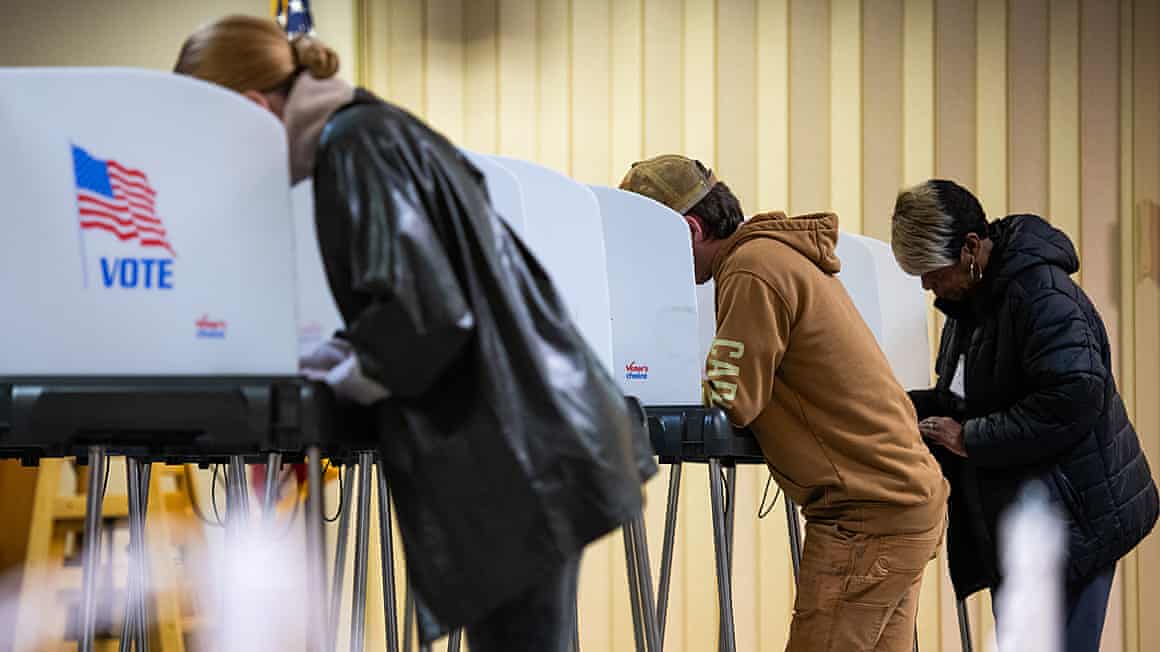 |
 People cast ballots in Tryon, North Carolina. Photograph: Melissa Sue Gerrits/Getty Images
|
|
|
|
Democrats have successfully negotiated an agreement to safeguard the voting rights of about 98,000 North Carolina residents after the Trump administration tried to restrict them.
The action was taken after the justice department sued the North Carolina state board of elections this year, demanding that the state prevent those who had provided a driver’s license number or the last four digits of their social security number when they registered from voting.
The Democratic National Committee and voting rights groups in the state stepped in, arguing that the actions demanded by the justice department breached the National Voter Registration Act and had partisan motivations.
In other news …
|
|
|
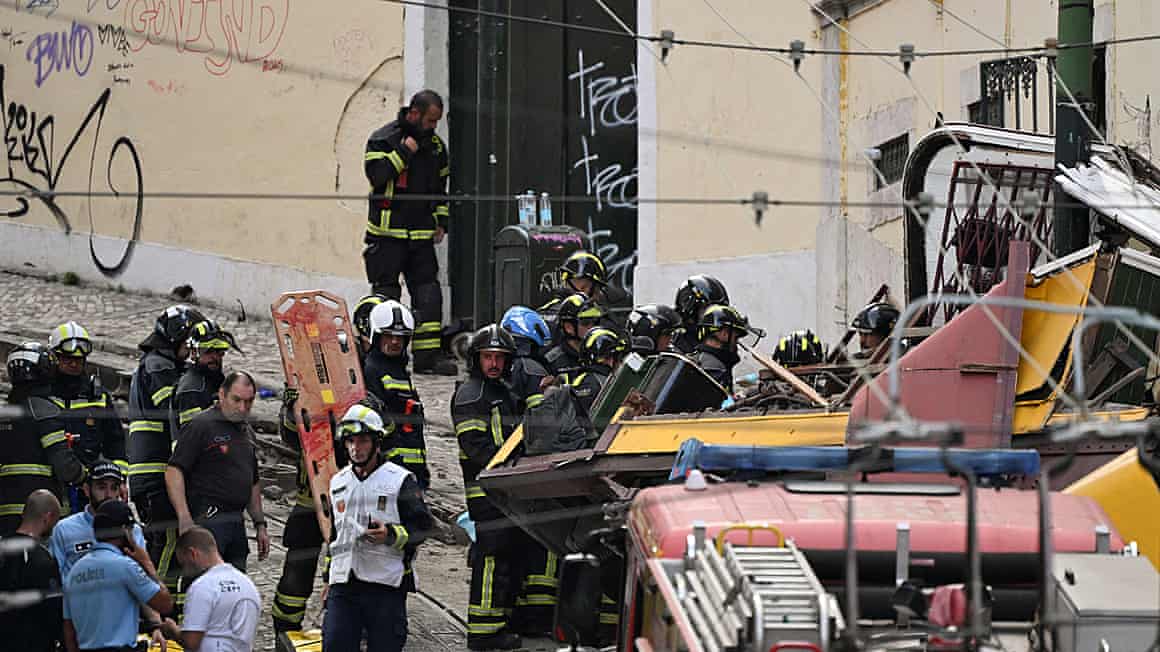 |
 First responders work at the site of a crash involving a derailed Glória funicular car in Lisbon. Photograph: Reuters
|
|
|
Stat of the day: Sweeteners can harm cognitive health equivalent to 1.6 years of ageing, study finds
|
|
|
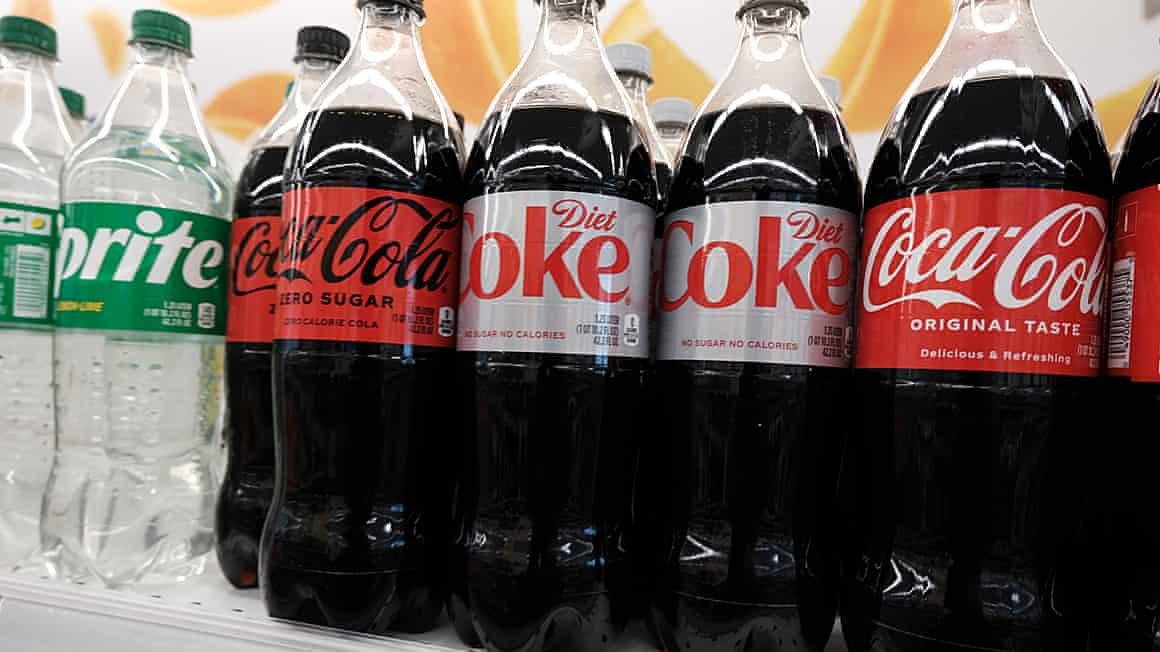 |
 Coca-Cola and Sprite are among the soft drinks containing low- or no-calorie sweeteners. Photograph: Spencer Platt/Getty Images
|
|
|
|
Consuming large amounts of sweeteners, such as those used in soft drinks, is linked to a 62% faster decline in the ability to think and remember – equivalent to ageing 1.6 years, a study has found. It adds to a growing body of research that suggests sweeteners such as aspartame and saccharin may raise the risk of a range of diseases including type 2 diabetes, cancer, heart problems, depression and dementia, as well as damage the gut wall.
Don’t miss this: The Knoxville dropout fighting to change how we see addiction
|
|
|
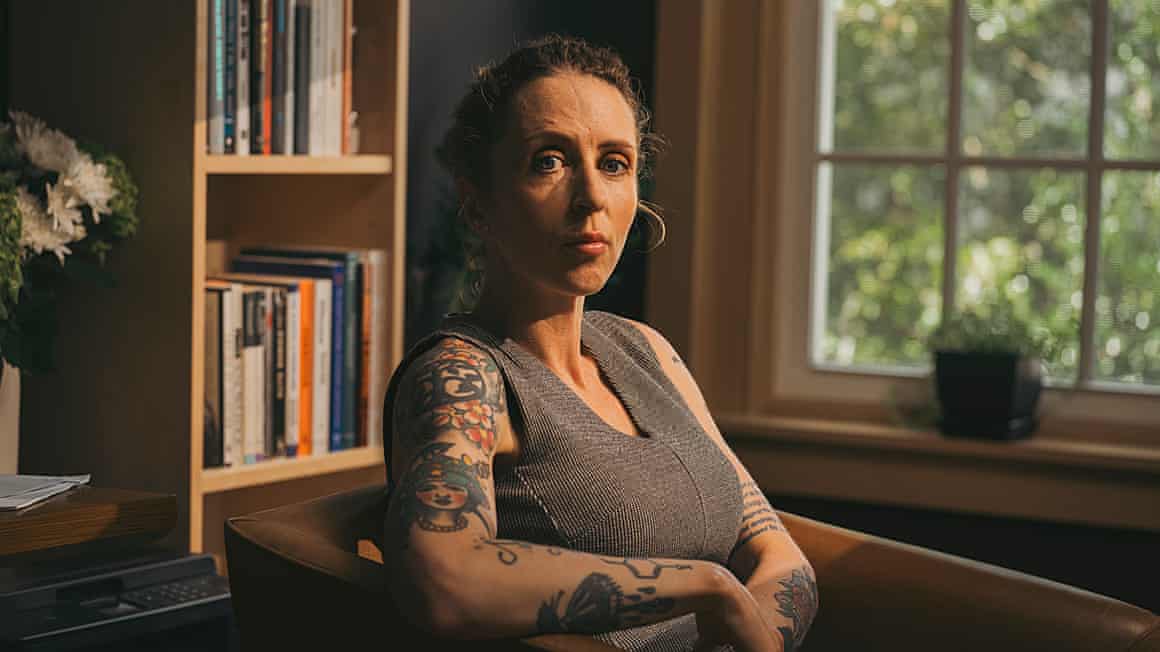 |
 Prof Kirsten Smith at her home in Westminster, Maryland. Photograph: Greg Kahn/The Guardian
|
|
|
|
Kirsten Smith was 16 when she first injected morphine; 18 when she shot up oxycodone. By 19, she had moved on to heroin, and within a few years she was in prison. Now, as an assistant professor of psychiatry and behavioural sciences, she believes her path was shaped of her own volition – and resists the model that understands addiction as a relapsing disease of the brain, arguing that it can stop people believing full recovery is possible.
Climate check: Spain and Portugal wildfire weather ‘made 40 times more likely by climate crisis’
|
|
|
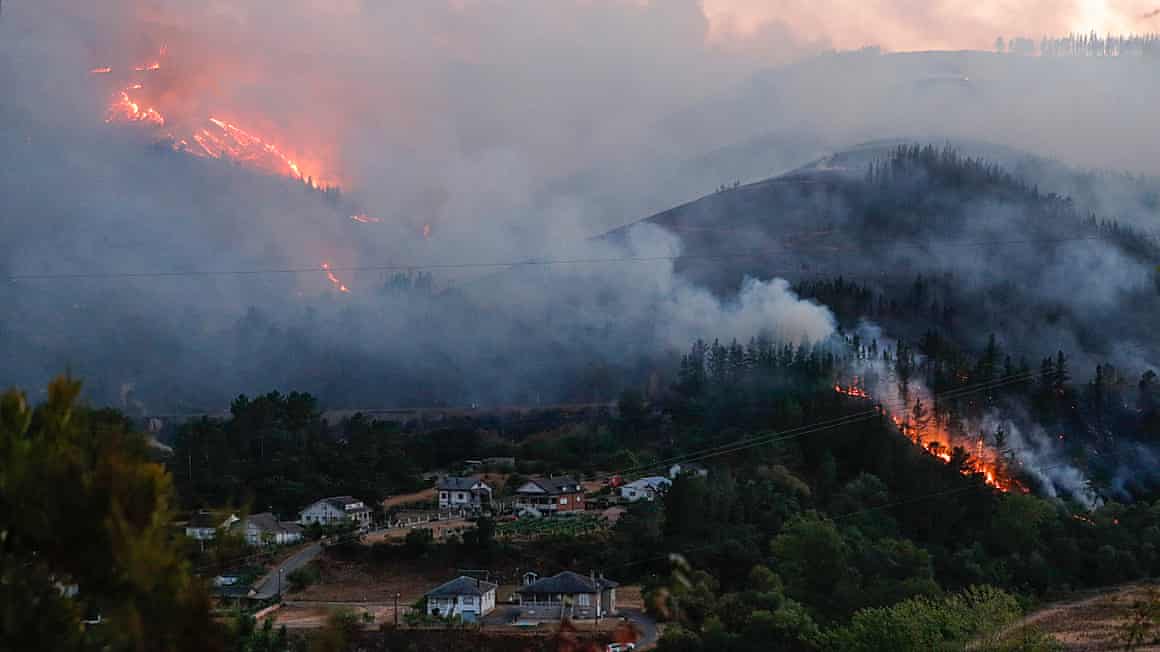 |
 A wildfire near the village of Quiroga, in north-west Spain, in late August. Photograph: Eliseo Trigo/EPA
|
|
|
|
The extreme weather that fueled August’s deadly wildfires in Portugal and Spain was made 40 times more likely by the climate crisis, according to early analysis. Researchers also found that climate breakdown made the fires, which burned 1.2m acres of the Iberian peninsula within weeks, 30% more intense.
Last Thing: New Jersey man breakdances through town hall tax questions
|
|
|
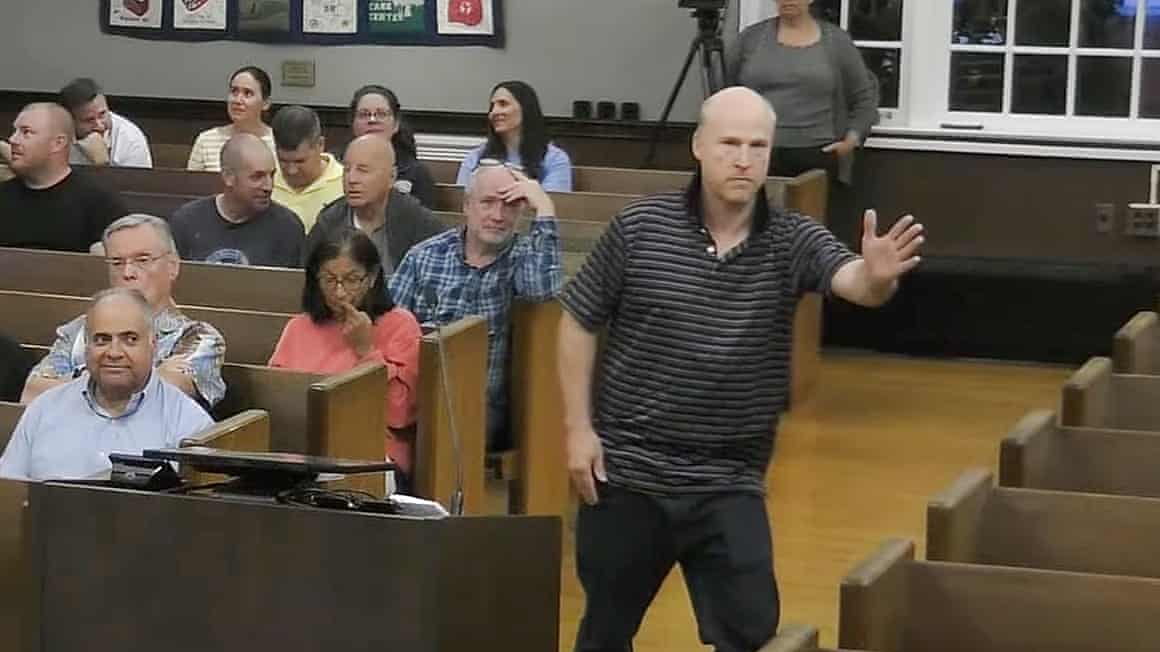 |
 Will Thilly breakdances during a town hall meeting in Cranford, New Jersey. Photograph: CranfordTV35
|
|
|
|
Footage has gone viral of a man from New Jersey prefacing his questions about rising taxes at a town hall meeting with a breakdancing performance. Will Thilly, who has a history of unconventional town hall appearances, said after Tuesday’s impromptu performance that he wanted local government to “lighten up” as “people are overly stressed”.
Sign up
|
|
|
|
|
|
First Thing is delivered to thousands of inboxes every weekday. If you’re not already signed up, subscribe now.
Get in touch
If you have any questions or comments about any of our newsletters please email newsletters@theguardian.com
|
|
| |
|
Betsy Reed
|
|
Editor, Guardian US
|
|
|

|
|
|
At this dangerous moment for dissent
I hope you appreciated this newsletter. Before you move on, I wanted to ask if you could support the Guardian at this crucial time for journalism in the US.
When the military is deployed to quell overwhelmingly peaceful protest, when elected officials of the opposing party are arrested or handcuffed, when student activists are jailed and deported, and when a wide range of civic institutions – non-profits, law firms, universities, news outlets, the arts, the civil service, scientists – are targeted and penalized by the federal government, it’s hard to avoid the conclusion that our core freedoms are disappearing before our eyes – and democracy itself is slipping away.
In any country on the cusp of authoritarianism, the role of the press as an engine of scrutiny, truth and accountability becomes increasingly critical. At the Guardian, we see it as our job not only to report on the suppression of dissenting voices, but to make sure those voices are heard.
Not every news organization sees its mission this way – indeed, some have been pressured by their corporate and billionaire owners to avoid antagonizing this government. I am thankful the Guardian is different.
Our only financial obligation is to fund independent journalism in perpetuity: we have no ultrarich owner, no shareholders, no corporate bosses with the power to overrule or influence our editorial decisions. Reader support is what guarantees our survival and safeguards our independence – and every cent we receive is reinvested in our work.
The Guardian’s global perspective helps contextualize and illuminate what we are experiencing in this country. That doesn’t mean we have a single viewpoint, but we do have a shared set of values. Humanity, curiosity and honesty guide us, and our work is rooted in solidarity with ordinary people and hope for our shared future.
It has never been more urgent, or more perilous, to pursue reporting in the US that holds power to account and counters the spread of misinformation. Can you spare just 37 seconds now to support our work and protect the free press?
|
|
We value whatever you can spare, but a recurring contribution makes the most impact, enabling greater investment in our most crucial, fearless journalism. We’ve made it very quick to set up, so we hope you’ll consider it. Thank you.
|
|
|
|
|
|
| |
|

|
Manage your emails | Unsubscribe | Trouble viewing?
|
| You are receiving this email because you are a subscriber to First Thing: the US morning briefing. Guardian News & Media Limited - a member of Guardian Media Group PLC. Registered Office: Kings Place, 90 York Way, London, N1 9GU. Registered in England No. 908396 |
|
|
|
|
|